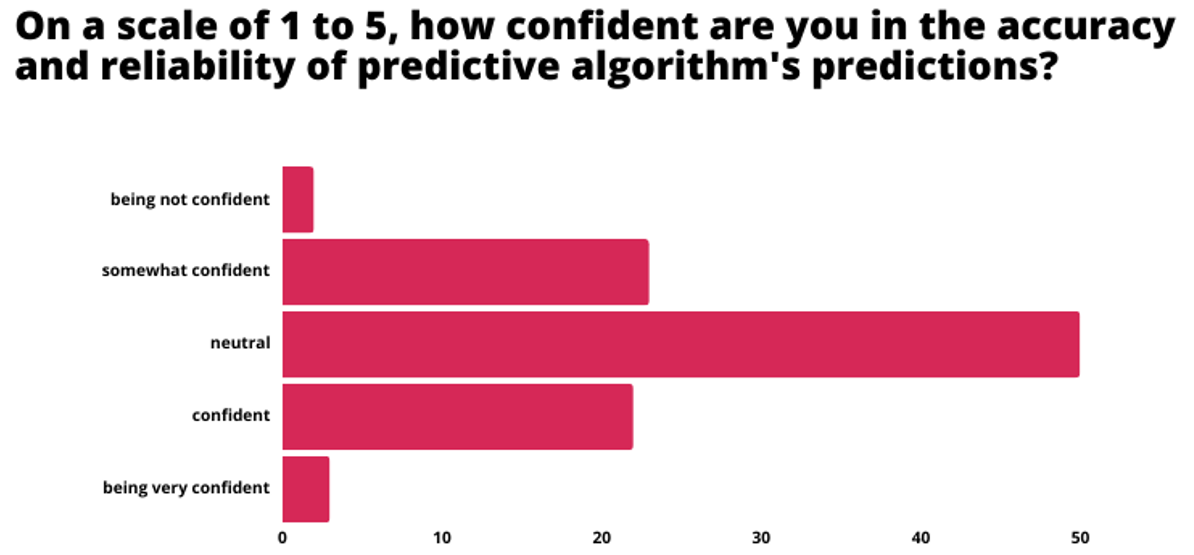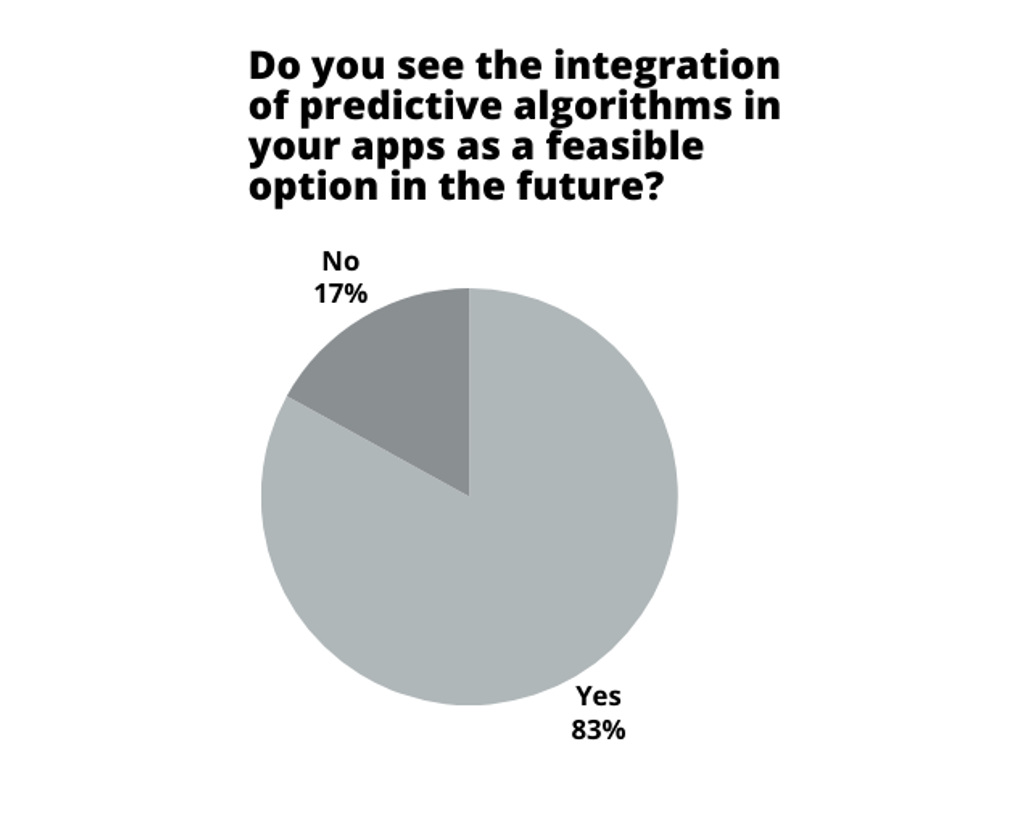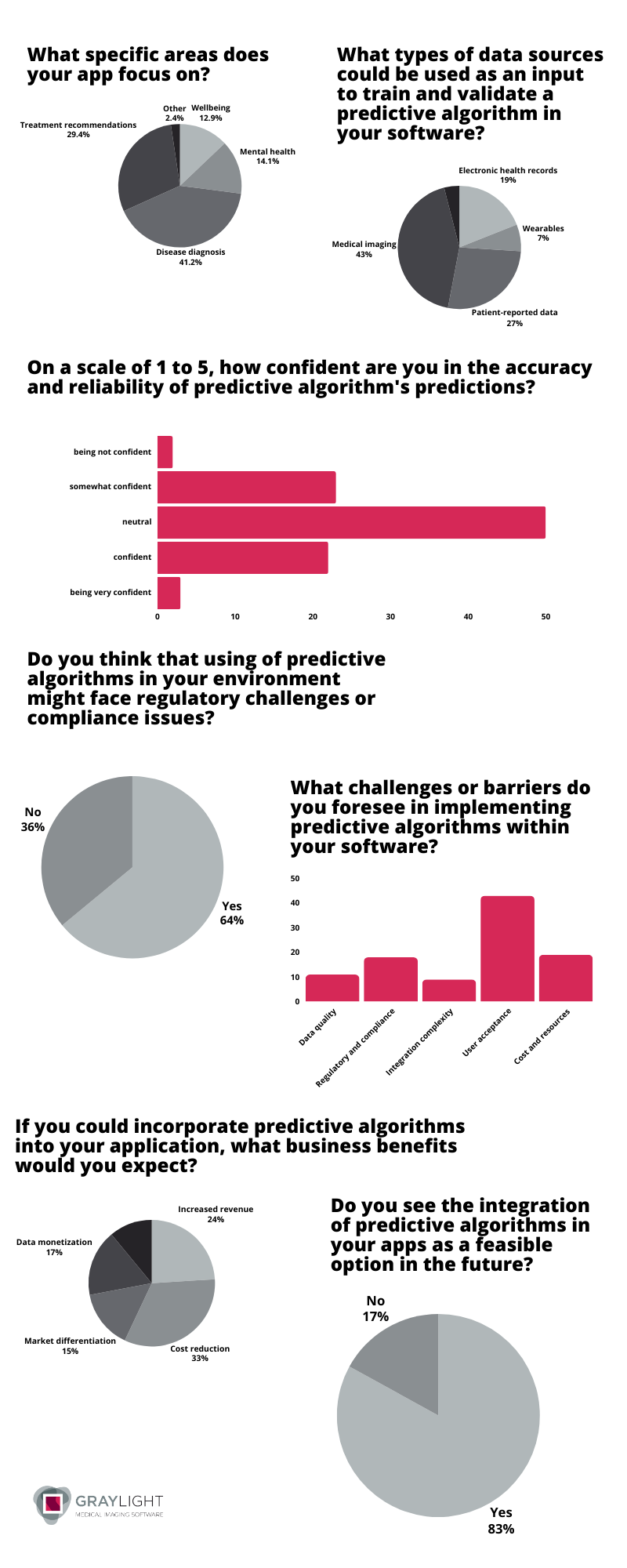From potential to reality: Is there a real ROI of predictive analytics in healthcare?
Some time ago, we conducted a survey on predictive algorithms in healthcare. The purpose of the survey was to gather the opinions of representatives from companies and organizations developing medical technologies, and to take a closer look at the opportunities and challenges they see in implementing such algorithms in the solutions their organizations bring to market. Today, we would like to invite you to review the detailed results of this survey:
Predictive algorithm survey – what do our respondents think?
In the first question, we asked about the areas in which our respondents are developing or co-developing medical applications. Their apps focus on disease diagnosis (35%) and treatment recommendations (25%). This is followed by mental health (12%), patient monitoring (15%), and wellbeing (11%).
Our respondents suggested various resources for training and validating predictive algorithms in their health apps. These resources should cover the primary areas and functionalities needed by the applications.
19% of respondents pointed to electronic health records (EHRs), 43% to medical imaging 43%, and 27% reported patient data. Wearable devices were also specified, but to a lesser extent (7%). This suggests how important it is to the technology industry to increasingly recognize the value of a variety of data sources to improve the accuracy and reliability of predictive algorithms.
The majority of respondents (50%) expressed a neutral stance about the accuracy and reliability of predictive algorithm predictions. Some skepticism remains about the capabilities of these algorithms. However, a significant minority remains confident in their potential.

Are responders concerned about the potential regulatory challenges?
A significant portion, 64% of answerers, are concerned about the possible regulatory challenges or compliance issues when using predictive algorithms in their environment. These algorithms can significantly impact patient care and decision-making. Because of this, ensuring their responsible and ethical use is crucial.
Among the barriers and obstacles, the most indicated challenges to implementing predictive algorithms in health apps are user acceptance (43%), cost and resources (19%), concerns about potential regulatory challenges or compliance issues (18%) and data quality (11%), and eventually integration complexity (9%). In fact, integrating predictive algorithms into existing software systems and ensuring end-user acceptance present significant challenges, highlighting their complexity.
Survey shows predictive algorithms drive business value
On the other hand, respondents expect a range of business benefits from incorporating predictive algorithms into their applications. The most anticipated benefits are increased revenue (24%) and cost reduction (33%). Survey finds 15% expect predictive algorithms to differentiate their companies, 17% see data monetization potential, and 11% anticipate improved decision-making.
Finally, a vast majority (83%) see the integration of predictive algorithms in their apps as a feasible option in the future. This suggests that despite the challenges, medical companies hold optimism about the potential of these algorithms to transform healthcare.

Is predictive analytics new hit-or-miss?
The survey concluded that predictive algorithms may be a major force in healthcare and personalized medicine. However, it is important to address the challenges that need to be overcome before they can be widely adopted.
In that case, results reveal a continuing trend: strong interest in predictive analytics in medical technology. These findings align with the trends and analyses conducted by market consulting and analysis giants. An example is a Deloitte report [1], which identifies the following as the main opportunities associated with the implementation of predictive algorithms:
- Improving efficiencies for operational management of healthcare business operations
- Accuracy of diagnosis and treatment in personal medicine
- Increased insights to enhance cohort treatment
However, it is clear that the technological environment is far from being overly optimistic and approaches this trend with some reservation. Considering that predictive algorithms could deliver measurable ROI and savings values, would the situation regarding their adoption look any different?
Predictive analytics delivering measurable ROI in healthcare
In our research endeavors, one project specifically focused on developing a model to help predict and stratify the risk of postoperative delirium (POD) in patients after surgery. The project was successful, and the client was able to demonstrate the real ROI that healthcare can achieve by implementing such a predictive algorithm in their network.
According to their case study [2] describing a pilot, two-month deployment conducted on a group of 862 patients over the age of 60, the hospital achieved monthly savings of >CHF 470,000 due to better management of patient length of stay in the hospital (reducing the average length of stay (LOS) by 0.8 days). Additionally, there were additional revenues (CHF 30,900) due to improved management of postoperative screenings and better diagnosis.
In addition to these benefits, can you think of similar, real-world benefits that predictive analytics could bring to your organization, your clients, or end users?
